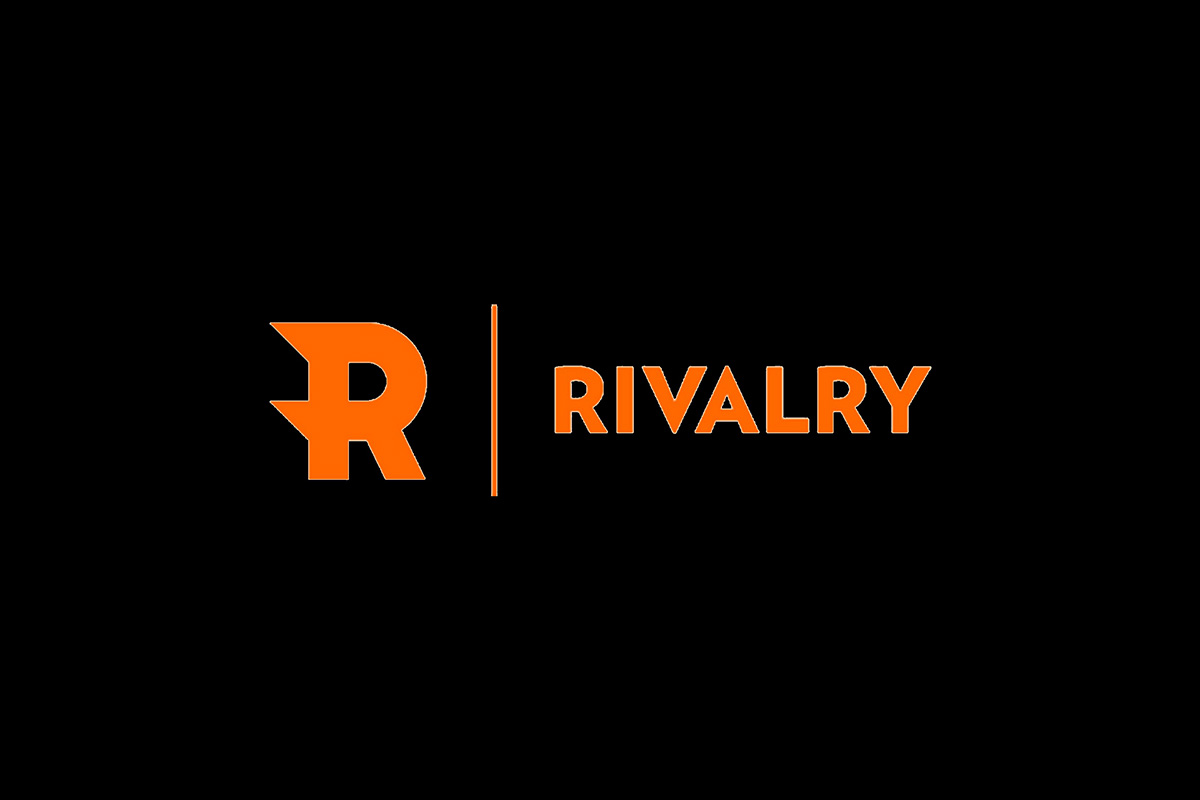Canada
PlayIllinois.com: Mobile registration a boon for Illinois sportsbooks

An executive order that temporarily allowed remote registration for sports bettors helped Illinois open the door to a remarkable July, even if only two sportsbooks were operating to take advantage.
The Illinois Gaming Board announced Thursday that 230,000 mobile sports betting accounts have been created, a number that would have been a fraction of that with the state’s in-person registration requirement in effect, according to analysts for PlayIllinois, which tracks regulated online and retail gaming in the state. And with the remote registration window once again opened by Gov. J.B. Pritzker, at least until Saturday, new sportsbooks opening, and major sports returning, the difference in the coming months could be in the 10s of millions of dollars.
“We have seen over the past two years that legal jurisdictions with remote registration have a distinct advantage over those states with an in-person registration requirement,” said Dustin Gouker, lead analyst for PlayIllinois.com. “With Illinois’ sizable potential as a market, it could be a difference measure in tens of millions in wagers each month.”
PlayIllinois estimates that the sports betting market in the state will eventually grow to $9 billion to $11 billion in bets annually, but the industry is off to an uneven start amid a pandemic and confusing in-person registration rules that have been on again and off again. Through July, Illinois sportsbooks have accepted $61.8 million in bets, with $52.5 million coming in a July that was mostly void of major U.S. sports, according to official reporting released earlier this week.
$51.9 million of July’s handle was generated by BetRivers/Rivers Casino in Des Plaines, with the remainder coming from Argosy Casino Alton. The surge was inevitable, with or without remote registration. But to put BetRivers month into perspective, its Illinois handle would have topped every sportsbook in Pennsylvania except FanDuel during the month of July.
Not bad for a debut.
With few major sports to bet on, BetRivers received a significant boost from Gov. Pritzker’s executive order to suspend the state’s in-person registration requirement — which forces a sports bettor to be in the physical presence of a retail sportsbook at time of registration — until July 26. That suspension was reinstituted on Aug. 26 through at least Saturday, opening the door for a remote registration boom for DraftKings, FanDuel, PointsBet, and William Hill, which have all launched online sportsbooks in Illinois since. But no one is certain if the governor will allow the executive order to lapse this weekend.
“We’re so early in the process in Illinois, but August and September will be particularly telling months,” Gouker said. “Obviously, we expect a surge in action just from a full schedule of major sports. But remote registration widens the market by simply adding a layer of convenience for those in Illinois who don’t live near a retail sportsbook.”
The difference between in-person registration requirements and remote registration can be dramatic. Nowhere is that clearer than in New Jersey and Nevada.
New Jersey, which does not have in-person registration requirements, has overtaken Nevada as the nation’s largest sports betting market. And that difference has been critical during the pandemic.
New Jersey — which does not have in-person registration requirements — has overtaken Nevada as the nation’s largest sports betting market, topping Nevada in every month this year and shattering Nevada’s record for monthly handle in August with $668 million in wagers. And from March through July, New Jersey accepted $834.5 million in bets, nearly twice as much as Nevada’s $441.1 million.
Indiana, Colorado, and Pennsylvania have seen success fueled by online betting without in-person registration, too.
“It is a key differentiator and fundamental difference between Nevada and the largest of the newer markets, all of which have benefited from their online products being untethered to in-person registration,” Gouker said. “That has held especially true during the pandemic, when in-person betting has slowed even after reopening from shutdowns.”
For more information and analysis on regulated sports betting in Illinois, visit PlayIllinois.com/news.
About the PlayUSA.com Network:
The PlayUSA.com Network is a leading source for news, analysis, and research related to the market for regulated online gaming in the United States. With a presence in over a dozen states, PlayUSA.com and its state-focused branches (including PlayIndiana.com, PlayIllinois.com, PlayNJ.com and PlayPennsylvania.com) produce daily original reporting, publish in-depth research, and offer player advocacy tools related to the advancement of safe, licensed, and legal online gaming options for consumers. Based in Las Vegas, the PlayUSA Network is independently owned and operated, with no affiliation to any casino — commercial, tribal, online, or otherwise.
Powered by WPeMatico
Canada
Rivalry Corp. Announces Significant Reduction in Operations and Evaluation of Strategic Alternatives

Rivalry Corp. announced that its Board of Directors has approved a significant reduction in operating activity as the Company evaluates strategic alternatives in respect of its assets and operations.
The Company is engaged in discussions with third parties regarding potential transactions. However, in light of recent performance volatility, the Board has determined to materially reduce the scale of operations while assessing whether a strategic transaction or other alternative can be advanced.
Effective immediately, the Company is implementing substantial cost reductions, including a significant workforce reduction and reduced operating expenditures. The Company has paused player activity on its platform and is facilitating player withdrawals in the ordinary course.
The Company is assessing a range of potential alternatives, which may include asset-level transactions, corporate transactions, restructuring initiatives or other strategic outcomes.
Given the Company’s reduced operating scale and the ongoing evaluation process, there can be no assurance that any strategic alternative will be completed or that operations will continue in their current form.
The post Rivalry Corp. Announces Significant Reduction in Operations and Evaluation of Strategic Alternatives appeared first on Americas iGaming & Sports Betting News.
Alex Malchenko
Evoplay Strengthens Canadian Presence with BetMGM Partnership

Evoplay is celebrating another milestone in its regulated-market journey with a new launch in Ontario, teaming up with BetMGM to bring its games to one of Canada’s most dynamic and competitive jurisdictions.
The rollout introduces 18 Evoplay titles to BetMGM Casino in Ontario, carefully selected to deliver long-term engagement and appeal to a wide range of player preferences. The first wave includes proven performers such as:
• Hot Triple Sevens
• Hot Volcano
• Gold of Sirens Bonus Buy
• Inner Fire Bonus Buy.
These are games that have already demonstrated strong results across multiple regulated markets.
This launch marks another confident step in Evoplay’s Canadian expansion, reinforcing the company’s commitment to aligning its content with local market requirements, player expectations, and regulatory standards.
Alex Malchenko, Head of Sales at Evoplay, said: Ontario continues to set a high standard for regulated online casinos, making it a market where the right partnerships truly matter. Collaborating with BetMGM allows us to expand our reach with a portfolio that has already performed strongly across multiple areas and territories.
Oliver Bartlett, VP of Gaming at BetMGM, said: “Partnering with Evoplay adds a strong selection of proven, high-performing titles to our growing portfolio in Ontario.”
The post Evoplay Strengthens Canadian Presence with BetMGM Partnership appeared first on Americas iGaming & Sports Betting News.
Bet Rite
Spintec Expands into Canada with Bet Rite

Spintec is expanding its footprint in North America by partnering with Bet Rite in the Canadian gambling sector. As a prominent developer of electronic table games, Spintec invested significant effort into locating a partner who comprehends the distinctiveness of the Canadian casino industry. Bet Rite is taking on the position of Spintec’s distributor in Canada, leveraging its established reputation and substantial industry knowledge. This collaboration combines global innovation with local expertise in a partnership that is helping Spintec advance its expansion objectives in North America.
Bet Rite’s establishment is rooted in years of industry expertise. The firm focuses on providing top-notch gaming solutions designed specifically for Canadian operators. They aim to provide a sole vendor connection that grants access to numerous top-tier product lines, establishing them as a reliable partner nationwide.
For Spintec, collaborating with a company that prioritizes service, product excellence, and enduring relationships is vital, and Bet Rite is dedicated to prioritizing customer needs. With a solid sales network and a reputation for dependability, their market stance is highly strong.
Through this collaboration, Spintec is guaranteeing that their creative products receive backing from an attentive, community-focused service. The initial product line to be launched in the Canadian market will be Spintec’s premier Charisma line. Charisma’s design, flexibility, innovation, and wide range of product customizations will undoubtedly make it a top seller in Canada as well.
Billy Maclellan, Bet Rite President, says: “Our company has grown by offering best-in-class suppliers the local support that they need. Spintec fits the mold perfectly and together we are well placed to make this partnership a glowing success”
Goran Sovilj, Spintec’s Chief Commercial Officer, agrees: “Bet Rite’s deep understanding of the Canadian market makes this alliance very promising. We are always excited to introduce innovative and exciting products to new markets, especially when our distributors are as experienced and knowledgeable as Bet Rite.”
The post Spintec Expands into Canada with Bet Rite appeared first on Eastern European Gaming | Global iGaming & Tech Intelligence Hub.
-

 Amusnet6 days ago
Amusnet6 days agoWeek 7/2026 slot games releases
-

 Brino Games6 days ago
Brino Games6 days agoQTech Games integrates more creative content from Brino Games
-

 Aphrodite’s Kiss6 days ago
Aphrodite’s Kiss6 days agoLove on the Reels: Slotland Introduces “Aphrodite’s Kiss”
-

 Alex Malchenko6 days ago
Alex Malchenko6 days agoEvoplay Strengthens Canadian Presence with BetMGM Partnership
-

 3 Oaks Gaming6 days ago
3 Oaks Gaming6 days ago3 Oaks Gaming Enters Spanish Market
-

 AMLA6 days ago
AMLA6 days agoAMLA Launches Public Consultation on Three Draft Regulatory Acts
-

 Latest News6 days ago
Latest News6 days agoRed Papaya Presents: Lucky Rainbow Rush Adventure
-

 3 Oaks Gaming6 days ago
3 Oaks Gaming6 days ago3 Oaks Gaming Secures Registration from MINCETUR to Enter the Regulated Peruvian Market



















